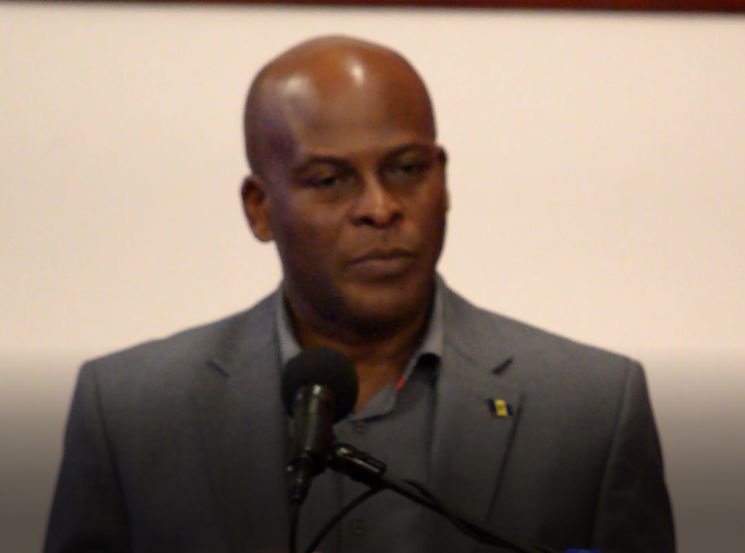Cabinet has approved a new Juvenile Justice Bill, which Minister for Home Affairs, Edmund Hinkson says will reform child laws in Barbados and bring Barbados’ juvenile justice system in line with international best practices.
Addressing the annual Hildegarde Weekes Memorial Public Lecture at the Central Bank last evening, Hinkson said the new Bill will provide a fresh approach to the way in which juvenile matters are addressed in the criminal justice system, which are currently governed by laws that are almost a century old.
In a subsequent interview with Barbados TODAY he said that currently, children aged 11 to 18 who run afoul of the law are dealt with under the Juvenile Offenders Act which was passed into law in 1926, and the Reformatory and Industrial Schools Act, which was passed in 1932.
“This of course was before the majority of Barbadians presently alive, even before their grandparents were born; laws that are over 95 years old and were obviously passed coming down from the United Kingdom when we were still very much a colony.
“And these laws clearly are pointed to people who were from the poorest aspects of our society, and who were of a particular colour,” he said.
Under the new law, no child under age 12 will have criminal responsibility. Additionally, children between 12 and 14 years old will not be confined to a penal institution.
“So, only children over age 14 will have to go to the Government Industrial School. And children will be only placed in that penal institution as a very last resort, and only where it is not their first offence … [or] where they’re charged with a serious crime such as murder and other similar offences.”
Hinkson added that the Bill also requires a mandatory probation report done by a qualified probation officer, and also allows the child the right to an attorney.
“A lot of our children who are charged with an offence criminally, and who are subsequently found guilty and sentenced to the Girls’ or Boys’ Industrial School, don’t have an attorney at law. Under the new system you will have the right to an attorney at law, you’ll have the right to a social worker, you’ll have the right to a probation officer, you’ll have the right to a health worker, you’ll have the right to a religious counsellor, you’ll have the right to access to reading material, adequate exercise, recreational activities and adequate clothing,” Hinkson said.

Members of the audience at last night’s lecture.
Another change will be to the minimum sentence to which a Magistrate can confine a child to the Government Industrial School (GIS), which is now three years.
“I have often wondered why this hasn’t been challenged as being unconstitutional because I find it absolutely offensive that you’re telling me that a girl who is wandering on the street at 10 o’clock at night and she’s found guilty, is sentenced to three years in Girls’ Industrial School. [It] can’t be just.
“She’s wandering in a lot of cases because an uncle or step father in the house [is] sexually abusing her, or she is being otherwise domestically or physically abused. It is absolutely not fair. So this new legislative regime, when it comes into effect, will give the child all these rights, protective rights, place the safety, welfare and wellbeing of the child at the centre of the whole issue, and to be a paramount consideration.
“And [it] will mean that society is better able to deal with these children who have problems, in a lot of cases not of their own making but which we cannot afford to ignore,” the St James North MP said.
It is hoped that the new Bill will also contribute to a reduction in the number of juvenile offenders who also end up on the wrong side of the law as adults.
“The facts are that many teenagers historically who have been confined to the Government industrial Schools, end up a few years later as adults in Dodds … It is better to spend money on them trying to rehabilitate them, trying to save them earlier in their life when they are early teens than to have to spend, $30,000 annually to house them as adults in Dodds,” Hinkson said.
He added that government is also looking at alternative sentencing.
“So the bill provides for compensation to be granted for offences of children relating to property or against the person. There’s also the provision for the child to provide a community service … or to pay compensation to a specified organisation where [there is] no identifiable person or organisation to whom compensation can be made.”
Hinkson also added that Prime Minister Mia Mottley has set up a sub-committee, to be chaired by him, to look into setting up a residential facility for at-risk children. (MCW)




